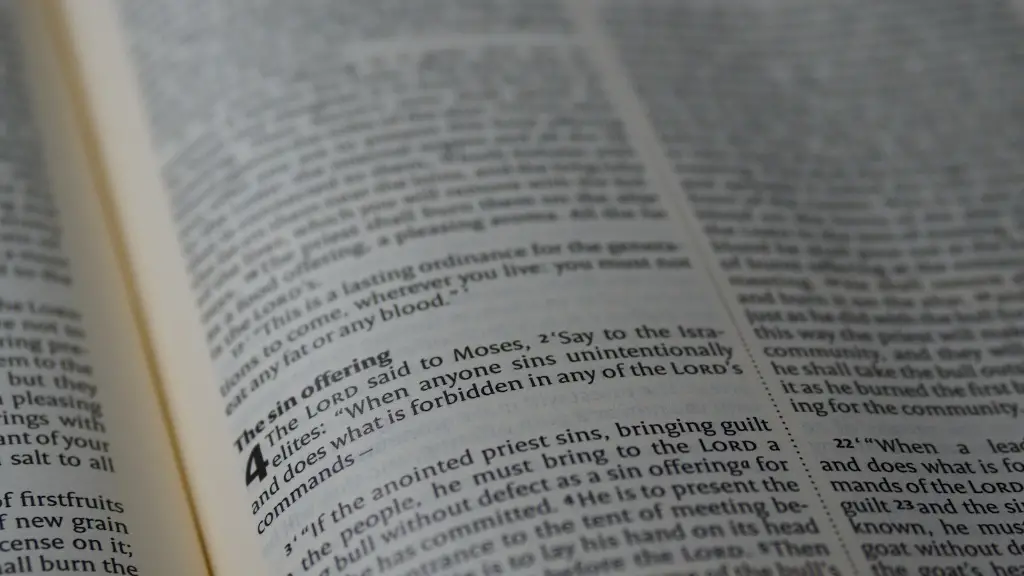A mystic is a person who has or claims to have direct, intuitive knowledge of God or ultimate reality beyond the sense of sight, expertise, or reason. The term mystical and mysticism are used interchangeably.
Mystics often claim to experience union with or direct knowledge of God while in a state of altered consciousness, such as trance, ecstasy, or Visionary states. They may even claim to have supernatural or extrasensory experiences such as prophetic visions.
The Bible contains many examples of mystics, from the prophet Moses to the apostle Paul. Miriam, the sister of Moses, was a prophetess who led the women in singing and dancing after the crossing of the Red Sea (Exodus 15:20-21). Paul, who was once a persecutor of Christians, had a mystical experience on the road to Damascus when he was struck blind by a light from heaven and heard the voice of Jesus asking him why he was persecuting him (Acts 9:1-9).
So, in short, a mystic is someone who claims to have a direct relationship with God or ultimate reality, often experienced in altered states of consciousness.
A mystic is someone who has a deep understanding of spiritual matters. biblical mystics are often able to see things that other people cannot see and to understand things that other people cannot understand.
What makes someone a mystic?
Mystics are often looked upon with skepticism by the general population, as their claims of having direct communication with the divine or knowledge beyond the scope of human understanding often seem far-fetched. However, many mystics have been shown to be incredibly insightful, and their beliefs often hold a great deal of wisdom. For those seeking a deeper understanding of the universe, mysticism can be a fascinating and enlightening path.
Mystics have always been an important part of the Christian tradition, claiming contact with an order of reality that transcends the material world. These mystics affirm that their contact is with God the Trinity, and can only be accessed through the mediation of Christ and the Church. This note gives a brief overview of the role of mystics in Christianity and their impact on the tradition.
What is the purpose of a mystic
There are two main types of mystical practice: those that focus on acquiring skills and those that focus on personal transformation. For the most part, mystics who are focused on acquiring skills are interested in having visions, unitive experiences, possession states, and so forth. In a few cases, however, the purpose of mystical practice is to produce personal transformation. This usually happens when someone has a profound mystical experience that changes their perspective and leads them to want to live their life in a different way.
There is a lot of debate about whether mystics or prophets are more important in terms of guiding people towards the truth. Some people believe that mystics are more important because they can see the Oneness that exists within all things, while prophets are more focused on the lack thereof. Others believe that prophets are more important because they are able to see the path that people need to take in order to achieve enlightenment. Ultimately, it is up to each individual to decide which is more important to them.
What are the 4 marks of a mystic?
William James was a philosopher and psychologist who wrote about a variety of topics, including mystical experience. James characterized mystical experience by four marks: transiency, passivity, noetic quality, and ineffability.
Transiency refers to the fact that mystical experiences are generally brief. They may last for a few seconds or minutes, but they are not usually prolonged.
Passivity refers to the fact that, during a mystical experience, the individual generally does not actively do anything. Rather, the experience happens to them.
The noetic quality refers to the fact that, during a mystical experience, individuals often have a sense of knowing or understanding things that they could not have known or understood through the use of their normal senses and reason.
Ineffability refers to the fact that mystical experiences are often difficult to put into words. They may be indescribable or ineffable.
Mysticism is a way of connecting with the divine, or the ultimate reality, that is beyond our everyday experience. It is often associated with practices like meditation, prayer, and contemplation. While mysticism is not a religion, it is practiced devotedly in different religions of the world. Mysticism is within most religious beliefs, meditations, and mystical experiences.
What are the powers of mystic?
Mysticism is the ability to connect to divine forces in an altered state of consciousness, allowing users to perform extraordinary feats such as commanding concepts, attaining vast knowledge and possessing powerful dominion. By utilizing this ability, users can access supernatural abilities that can be extremely beneficial. However, it is important to be aware that connecting to unholy forces can also be extremely dangerous. Therefore, it is important to use caution when utilizing this ability and to only connect to forces that you are comfortable with.
The three stages of contemplative practice are designed to purify the soul, bring it into closer contact with God, and ultimately to attain the vision of God. In the first stage, catharsis, the soul is purged of all its impurities and distractions. This is done through prayer and self-examination, as well as by turning away from the world and its temptations. In the second stage, contemplation proper, the soul turns its attention wholly to God, seeking to commune with Him in silence and stillness. Finally, in the third stage, the vision of God is attained, and the soul is united with Him in perfect bliss.
Which religion is mysticism
Mysticism is often defined as a belief in the existence of an unseen reality that is accessible to humans only through special, spiritual means. This aspect of mysticism is found in religions such as: Christianity, Islam, Judaism, and Hinduism. All of these religions believe in ‘GOD’-an Ultimate Divine entity that is beyond our comprehension and can only be experienced through mystical states of consciousness.
Mystical experiences are often described as feelings of unity with God, a sense of transcendence of time and space, and a deep sense of love and compassion. These feelings may be termed mystical.
A mystic is someone who has an experience of union with The One—and The One may be God, it may be Mother Earth, it may be the cosmos.
To qualify as a mystic, as one who has had a mystical experience, or a series of mystical experiences, it really means allowing yourself to let go of your identity and just being. This can be a difficult thing for many people to do, as we are so used to holding on to our sense of self. But in order to have a true mystical experience, we must be willing to let go and just be one with the universe.
Who was the first mystic?
In his book, “Paul and his Interpreters,” Schweitzer argued that Paul was the first Christian to experience what he called the “mystical experience of God.” This experience was a direct, personal encounter with the divine that left Paul with a deep sense of awe and reverence.
While other early Christians may have had similar experiences, Schweitzer believed that Paul’s was the most significant because he was the first to articulate it in writing. This made Paul the first Christian mystic and Schweitzer’s argument has been influential in subsequent scholarship.
The Northern Mystics are a New Zealand netball team based in Auckland. They were founded in 2008 and played in the ANZ Championship until 2016. In 2017, they joined the ANZ Premiership, the top-level netball league in New Zealand. The Mystics are one of the most successful teams in the ANZ Premiership, having won three championships (in 2012, 2013, and 2020).
What is a divine prophet
A prophet is a person who speaks for God or a deity. In the Old Testament, a prophet was a person who was chosen to speak for God and to guide the people of Israel. Moses was the greatest of the Old Testament prophets.
Gnosis is a type of knowledge that is based on personal experience or perception. In a religious context, gnosis is mystical or esoteric knowledge based on direct participation with the divine. In most Gnostic systems, the sufficient cause of salvation is this “knowledge of” (“acquaintance with”) the divine.
What is more than a prophet?
More than a Prophet is an excellent resource for Christians who want to share their faith with Muslims in a way that is both sensitive and intellectually honest. The book does an excellent job of exploring the major concerns of Muslims regarding the person and teachings of Jesus, and provides a convincing case for the historicity of Christianity’s key claims about him. While More than a Prophet is certainly not the last word on the subject, it is a helpful introductory resource for those seeking to understand Jesus and the origins of Christianity.
There are many words that can be used to describe someone or something that is mystical, such as abstruse, anagogic, arcane, cabalistic, and cryptic. Each of these words has a different meaning, but they all convey a sense of mystery or intrigue.
Conclusion
A mystic is someone who is spiritually in tune with God. They are able to sense His presence and understand His will. Mystics often have a deep understanding of the Bible and are able to interpret its meaning in ways that others cannot.
Mystics in the Bible are people who have a special relationship with God. They may see God in visions or hear His voice. Mystics often have a deep understanding of God and His will.





